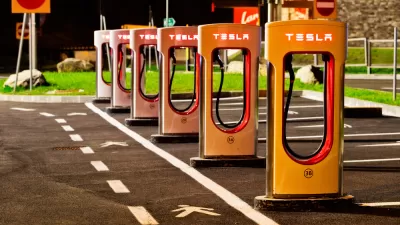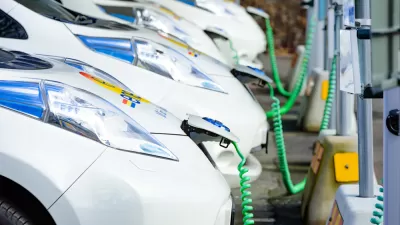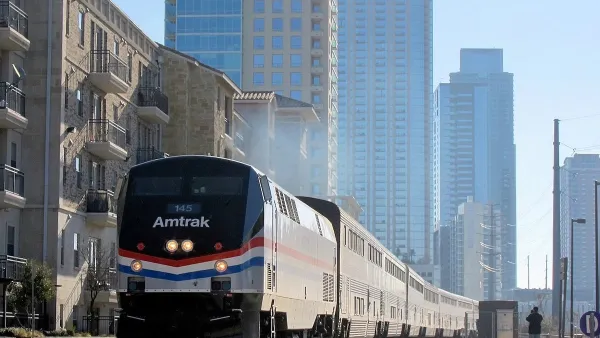The Senate Majority Leader's plan would pump more than $50 billion into direct incentives for consumers, manufacturers, and property owners.

As part of the push to shift American energy consumption to more sustainable sources, Senate Majority Leader Chuck Schumer plans to revive "his ambitious proposal to get every American to swap their gas-guzzling car for an electric one," reports Andrew J. Hawkins in The Verge.
First proposed in 2019, the plan would create a "cash-for-clunkers"-type program to give consumers "a 'substantial' point-of-sale discount" when trading in a gas-powered car for an electric one. "A spokesperson later confirmed they are eyeing rebates that are 'more generous' than the current $7,500 federal EV tax credit." The proposal also calls for "direct incentives to auto manufacturers to phase out their production of internal combustion engine vehicles and tax breaks for property owners to install EV chargers at their homes or apartment buildings," as well as $45 billion in grants and subsidies to local governments to improve the nation's network of EV charging stations. But with only 17% of the country's electrical grid drawing from renewable sources, "electric vehicles are only as green as their power source."
Some transit advocates criticize the plan, saying they "would rather see that sum of money spent on strengthening the nation’s public transportation infrastructure, especially at a time when the COVID-19 pandemic has caused a huge drop-off in ridership." Schumer has responded that he is "working on a 'large investment in clean mass transit' right now, which he also hopes to include as part of the Democratic infrastructure proposal."
FULL STORY: CHUCK SCHUMER WANTS TO REPLACE EVERY GAS CAR IN AMERICA WITH AN ELECTRIC VEHICLE

Planetizen Federal Action Tracker
A weekly monitor of how Trump’s orders and actions are impacting planners and planning in America.

Maui's Vacation Rental Debate Turns Ugly
Verbal attacks, misinformation campaigns and fistfights plague a high-stakes debate to convert thousands of vacation rentals into long-term housing.

San Francisco Suspends Traffic Calming Amidst Record Deaths
Citing “a challenging fiscal landscape,” the city will cease the program on the heels of 42 traffic deaths, including 24 pedestrians.

Defunct Pittsburgh Power Plant to Become Residential Tower
A decommissioned steam heat plant will be redeveloped into almost 100 affordable housing units.

Trump Prompts Restructuring of Transportation Research Board in “Unprecedented Overreach”
The TRB has eliminated more than half of its committees including those focused on climate, equity, and cities.

Amtrak Rolls Out New Orleans to Alabama “Mardi Gras” Train
The new service will operate morning and evening departures between Mobile and New Orleans.
Urban Design for Planners 1: Software Tools
This six-course series explores essential urban design concepts using open source software and equips planners with the tools they need to participate fully in the urban design process.
Planning for Universal Design
Learn the tools for implementing Universal Design in planning regulations.
Heyer Gruel & Associates PA
JM Goldson LLC
Custer County Colorado
City of Camden Redevelopment Agency
City of Astoria
Transportation Research & Education Center (TREC) at Portland State University
Jefferson Parish Government
Camden Redevelopment Agency
City of Claremont





























